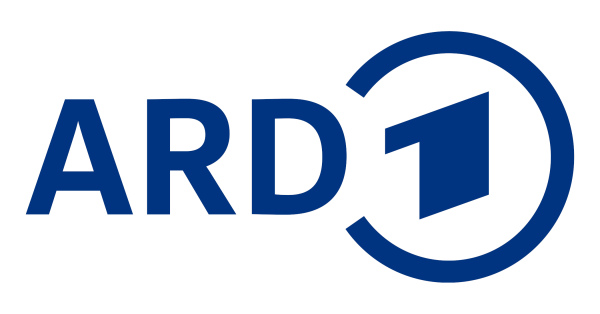
ARD
The ARD - short for Arbeitsgemeinschaft der öffentlich-rechtlichen Rundfunkanstalten der Bundesrepublik Deutschland (Association of Public Service Broadcasters of the Federal Republic of Germany) - is a broadcasting association consisting of the state broadcasters and Deutsche Welle. It was founded in 1950 and, together with Zweites Deutsches Fernsehen and Deutschlandradio, forms the public service broadcasting organization in Germany. ARD is largely financed by the broadcasting contribution and includes joint programs and offerings such as Das Erste, the ARD Mediathek, the Tagesschau and numerous state radio and television programs.
ARD's state broadcasters have a total of around 23,000 permanent employees, they produce eleven television programs, 55 radio programs and have 16 orchestras and eight choirs and are thus intended to represent the broadest possible cultural and social spectrum of the German federal states. The total annual budget of the nine broadcasters is around 6.3 billion euros. Sports rights account for 366 million euros of this. The members of ARD are constantly present with around 100 of their own radio and television correspondents in 30 locations around the world.
The preparation and broadcasting of the first joint television program in the Federal Republic of Germany began in the 1950s. The members of ARD operated a nationwide television program under the name “Deutsches Fernsehen” (German Television), which was renamed “Erstes Deutsches Fernsehen” (First German Television) after “Zweites Deutsches Fernsehen” (ZDF for short, launched in 1963), which did not belong to ARD, began broadcasting.
At the time of the division of Germany, numerous ARD programs could be received in the German Democratic Republic, which was also the intention of ARD. From the very beginning, the declared target group of ARD television was also the people in the GDR. For this purpose, powerful transmitters were deliberately set up near the border. Only in certain regions, such as the Elbe Valley, Saxon Switzerland and Upper Lusatia, was it not possible to receive ARD television programs. The Deutschlandfunk program could be received well throughout the entire territory of the GDR.
After the dissolution of the GDR's broadcasting system in the 1990s, several “new” federal states were not given their own broadcasting stations, as had been the case in some West German states in the 1950s. Mecklenburg-Western Pomerania was added to the North German Broadcasting Corporation, and Saxony-Anhalt, Thuringia and Saxony formed a joint state broadcaster, Mitteldeutscher Rundfunk (MDR). Brandenburg initially operated the Ostdeutscher Rundfunk Brandenburg (ORB) as a state broadcaster before it was merged with Sender Freies Berlin (SFB).
In 1950, the consortium adopted statutes that were supplemented by the Interstate Broadcasting Treaty. These statutes regulate the work and organization of ARD. (Source: Wikiepdia)
The mandate of public service broadcasting is derived from Article 5 (1) sentence 2 of the Basic Law, which regulates the freedom of the press, broadcasting and film, and is set out in broadcasting laws and the Interstate Broadcasting Treaty.
The Interstate Broadcasting Treaty is based on the democratic principles enshrined in the Basic Law, which are closely linked to Germany's history. This applies in particular to the restrictions on freedom of the press and freedom of opinion that were imposed under the Nazi regime by bringing the press and broadcasting into line. Against this background, media concentration and a one-sided partisan orientation in the media landscape must be prevented.
Accordingly, broadcasting should ensure the free formation of opinion and cultural diversity through the selection of programs and topics. Furthermore, it should serve the recipients with its educational, informational, advisory and entertainment offerings. In this respect, independent, factual and non-partisan reporting is always required. The information provided must be up-to-date, sustainable, reliable and credible. It is also emphasized that news “must be checked for truth and origin with the care required by the circumstances before it is disseminated”.
In addition, public broadcasters have the task of providing a basic service to the entire population regardless of audience ratings. Basic service means ensuring comprehensive reporting in terms of technology and content. The aim is to ensure a program aimed at the general public with a wide variety of content and the widest possible coverage. (Source: bpb.de)